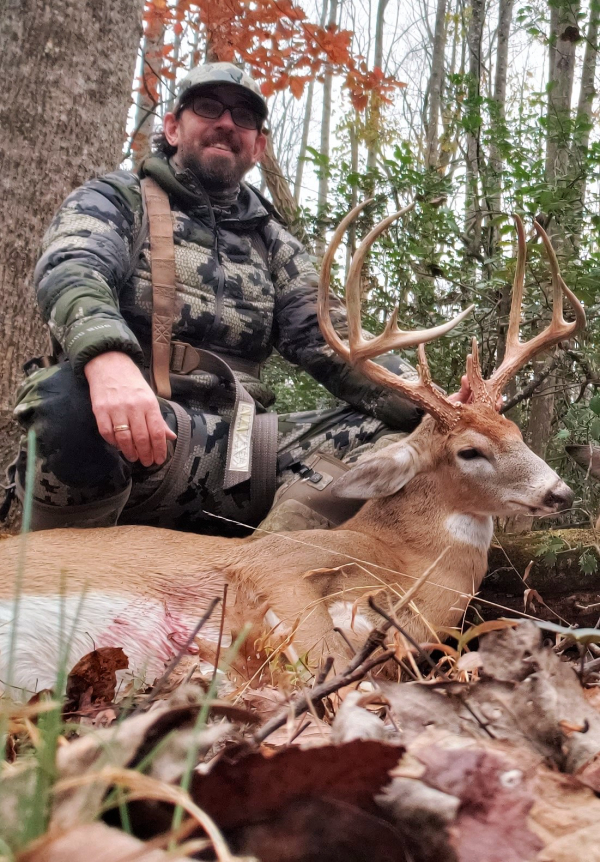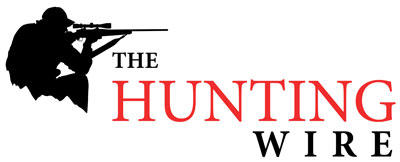Editor's Note: The Voice of Leadership Panel was so impressed by NSSF's Larry Keane's story, State Fish & Game Departments Are Changing and That Should Concern You, that we wanted to respond to and contribute to its message. To do so, we asked Brent Miller, Vice President, Policy, for the Congressional Sportsmen’s Foundation, to comment. Thank you, Larry Keane, for your voice of leadership in our community. Look for Mr. Keane's story in this edition of The Hunting Wire.
Brent Miller – Vice President, Policy, for the Congressional Sportsmen’s Foundation
In his excellent and timely April 5 article, State Fish & Game Departments Are Changing and That Should Concern You, Mr. Larry Keane (SVP of Government & Public Affairs, Assistant Secretary, and General Counsel of the National Shooting Sports Foundation, as well as a past Board Member of the Congressional Sportsmen’s Foundation (CSF))rightfully raises the alarm about some recent challenges regarding appointments to state fish and wildlife agencies’ boards and commissions. Of primary concern is that non-hunting interests, and in some cases even anti-hunting interests, are now permeating the regulatory and advisory entities that govern fish and wildlife management in the states.
Keane hits on some issues with recent appointments to the Commission in Colorado and notes a legislative effort in Vermont to restructure their Fish and Wildlife Board, while stripping it of its regulatory authority and turning it into an advisory entity only. Alarm bells should certainly be ringing, particularly when considering that these two examples are but two of many, and there were also significant battles on this issue in both New Hampshire and Kentucky this year, and many other states in years past, such as in Maryland just last year. We are beginning to see a trend here, and the issue won’t be going away anytime soon.
Many game commissions or boards were established with a singular purpose in mind – to make responsible, informed, and effective decisions regarding our time-honored traditions and fish and wildlife conservation. Previously, many of these commissions were made up exclusively of individuals with a significant knowledge base in the areas they would be charged with regulating – namely hunting, trapping, and/or fishing, fish and wildlife biology, or forestry, to name a few. Some states (such as New Hampshire) even go so far as to require that anyone being considered for such a post be able to demonstrate that they’ve held hunting and/or fishing licenses in recent years – a framework that should be celebrated and spread like wildfire in states across the nation as far as I’m concerned.
CSF was on the ground in Concord, New Hampshire earlier this year alongside leaders of the New Hampshire Legislative Sportsmen’s Caucus to beat back the latest attempt to overhaul the New Hampshire Fish and Game Commission – House Bill 1148 (HB 1148). This bill would have changed some of the appointment processes for commissioners, including laxing the hunting and fishing license requirement lauded earlier in this article. The current requirement is that candidates for appointment hold a license for at least 5 of the last 10 years, but the new language would lower that bar to at least 3 of the last 5. Due in part to CSF’s early engagement as well as broad opposition to the bill throughout the state’s sporting-conservation community, at the Committee’s executive session on February 6, the bill sponsor pulled HB 1148 from further consideration and sent it to interim study (for which the motion was officially adopted on February 22). This action halted the effort in New Hampshire, at least for now. However, HB 1148 was just the latest in what has become a perennial attempt to make changes to the F&G Commission, and we will surely see the issue return in future legislative sessions.
Just a week after killing the New Hampshire bill, Senate Bill 3 (SB 3) was introduced in Kentucky, which sought to administratively attach the Kentucky Department of Fish and Wildlife Resources to the Department of Agriculture and to authorize the Commissioner of Agriculture to appoint all members of the Fish and Wildlife Commission. Should this bill have been successful, Kentucky would have become the first state in the nation to grant such power to their Ag Department. While SB3 was very different than what our community faced in New Hampshire, we were steadfast and staunch in our opposition to it. Although the hunting and agriculture communities often share similar values and interests, there are also times when the interests of the two groups can differ substantially, particularly when it comes to wildlife management decisions on specific issues such as deer management and crop depredation, as an example.
During the bill’s consideration before the legislature, there were five openings on the nine-member Commission, and the balance of the Commission could have profoundly and immediately tipped towards agricultural interests with the bill’s passage. In opposition to SB 3, CSF submitted written testimony, testified in person in committee, and coordinated an action alert with conservation partners, asking sportsmen and women in Kentucky to encourage their elected officials to oppose Senate Bill 3. Through this action alert, as well as from the excellent efforts of the leader of the Kentucky Legislative Sportsmen’s Caucus, Senator Robin Webb, CSF and partners elicited a substantial response from the sporting-conservation community and SB 3 failed to pass the final legislative hurdles in the late hours of the 2024 legislative session.
Finally, in my home state of Vermont, CSF and our partners are currently running an action alert as we face yet another attempt to restructure the Vermont Fish and Wildlife Department’s Board (Vermont’s name for their commission). Introduced in January, Senate Bill 258 (S. 258) seeks to not only open the door for “non-consumptive” wildlife interests to be appointed to the Board, but would also strip it of its current regulatory powers, and would completely ban coyote hunting with bait or dogs (the latter point seemingly added in to give S. 258 a little extra shine for the anti-hunting interests, as if they needed any further motivation).
CSF has, alongside leaders of the Vermont Legislative Sportsmen’s Caucus and numerous partners, opposed S. 258 since its inception – just as we have with all prior iterations in past legislative sessions. This bill is still alive, having just received hearings in the House Committee on Environment and Energy last week. The bill cleared the Senate on March 26, and may soon find its way to the House floor for final passage. If you are reading this and are also a Vermonter, please consider joining us in the effort to defeat this bill and TAKE ACTION NOW. Through our action alert well over 2,300 messages have already been sent to Vermont legislators asking them to oppose S. 258 and educating them on the importance of hunting, fishing, and trapping for wildlife management. Despite these efforts, S. 258 continues to have a head of steam behind it, and we need all Vermont sportsmen and women to take a few minutes to place calls or messages through our action alert to ensure the voices of sportsmen and women ring loudly in the halls of Montpelier against this egregious bill.
As more states face legislation to restructure game commissions to include other interests, the efficacy of these entities to make swift and adaptive regulatory adjustments on fish and wildlife matters is diminished – to the potential detriment of the very resources they are tasked with overseeing. When we open the door to anti-hunting interests, we invite obstructionism from individuals who are simply philosophically opposed to items the commissions deal with on a yearly basis including season setting, predator management, trapping, adjustments in methods of take, rules governing the use of dogs afield, and more. CSF will continue to stand in firm opposition to these efforts in the years to come to ensure the sanctity of professional, science-based fish and wildlife management as a cornerstone of the North American Model of Wildlife Conservation into the future.
If you are interested in staying up to speed on this, or any other sportsmen’s policy issue, consider signing up for CSF’s FREE weekly newsletter, The Sportsmen’s Voice.

2023-2024 Voice of Leadership Panelists
Jon Zinnel, Federal Ammunition
Dan Forster, Archery Trade Association
Brent Miller, Congressional Sportsmen’s Foundation
Rick Brazell, First Hunt Foundation
Mark Peterson, Worldwide Trophy Adventure
Michelle Scheuermann, Bullet Proof Communications
Facilitators
- Peter Churchbourne, Director, NRA Hunter Leadership Forum
- Jim Curcuruto, Executive Director, Outdoor Stewards of Conservation Foundation
- James “Jay” Pinsky, Editor, The Hunting Wire & Archery Wire
The Voice of Leadership Panel is an appointed group of outdoor industry leaders who have volunteered to contribute their voices on crucial hunting and outdoor recreation issues to inform, inspire, and educate participants within our community.
